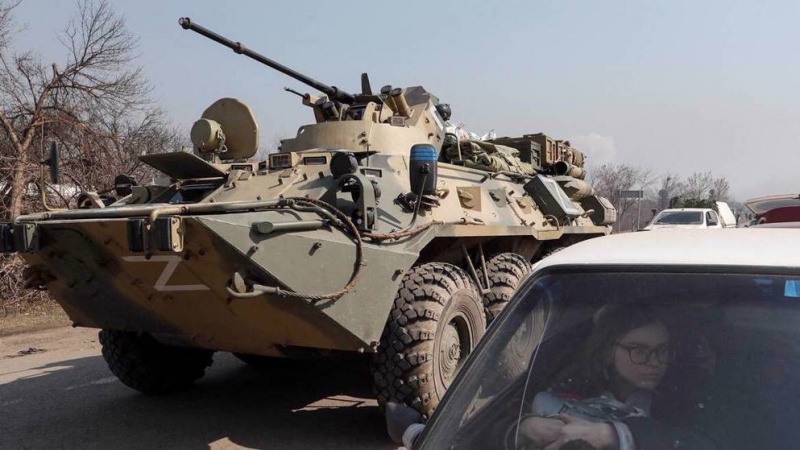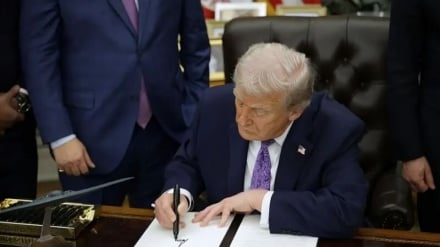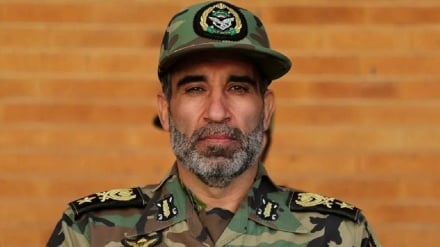Sanctions won't sway Russia as conflict enters second month: Medvedev
Former Russian President Dmitry Medvedev says sanctions won’t sway Russia as the West cranks up pressure on Moscow and the conflict with Ukraine enters the second month.
Medvedev, President Vladimir Putin’s predecessor and Deputy Head of Russia’s Security Council, was quoted as saying Friday that it was "foolish" to believe that Western sanctions against Russian businesses could have any effect on Moscow.
“The sanctions will only consolidate Russian society and not cause popular discontent with the authorities,” Medvedev asserted.
"Let us ask ourselves: can any of these major businessmen have even the tiniest quantum of influence of the position of the country's leadership?" Medvedev added. "I openly tell you: no, no way."
The former president said opinion polls showed that three-fourths of Russians supported the Kremlin's decision to carry out a military operation in Ukraine and even more supported Putin.
The Kremlin said Russia's exclusion from the G20 grouping of major economies -- sought by US President Joe Biden -- would not be "fatal".
"As far as the G20 format is concerned, it's important," Kremlin spokesman Dmitry Peskov told reporters. "But in the current situation, when most of the participants in this format are in a state of economic war with us, nothing fatal will happen."
Western governments have imposed unprecedented sanctions against Moscow, but stopped short of getting directly involved in the conflict.
The US and the EU announced a task force on Friday aimed at reducing Europe's reliance on Russian fossil fuels.
Biden to visit Polish town near Ukraine border
Biden was to be greeted on Friday by Polish President Andrzej Duda in Rzeszow, about 80 kilometers (50 miles) from the Ukrainian border.
The trip is designed to underscore Washington’s willingness to defend NATO allies, as fears rise that the month-old crisis in Ukraine could spill westward.
Biden’s trip comes as the West faces urgent questions about what more it will do to help Ukraine withstand the Russian military operation.
On the war front, two Russian missiles struck a Ukrainian military unit on the outskirts of the city of Dnipro, causing "serious destruction," regional governor Valentyn Reznychenko said on social media.
Russia's armed forces also destroyed a major fuel depot outside Kiev in a missile strike, the country's defense ministry said.
Spokesman Igor Konashenkov said the strike happened on Thursday evening, using Kalibr cruise missiles fired from the sea. Konashenkov said the depot was used to supply Ukraine's armed forces in the center of the country.
Israeli intelligence help
A top aide to Ukrainian President Volodymyr Zelensky revealed that the spy agencies of Ukraine and the Zionist entity were “cooperating very closely” even as he complained that Kiev had not received the security assistance it had requested from Israel.
"Our intelligence is cooperating very closely with Israeli intelligence,” Andriy Yermak told reporters during an online briefing.
The ongoing crisis in Ukraine has taken hostility between Russia and the US to the breaking point.
The Kremlin said on Friday that US talk of Russia possibly resorting to chemical weapons in Ukraine was a tactic to divert attention away from awkward questions for Washington.
Peskov told a conference call with reporters that the military would submit proposals to President Putin on how Russia should strengthen its defenses in response to NATO beefing up its eastern flank.
Russia also said it had "never" violated international legislation after Zelensky accused Moscow of using phosphorus bombs in his country.
Meanwhile, a senior official of Russia's State Duma said biological laboratories in Ukraine funded by the US have violated the United Nations Biological Weapons Convention and generated irreversible consequences, which requires thorough investigation to uncover the truth.
Irina Yarovaya, deputy chairwoman of Russian parliament’s lower house, charged the US with “secretly developing biological technologies in the territories of other sovereign nations, and prohibiting these nations from disclosing the nature of these experiments to their people".
SS



